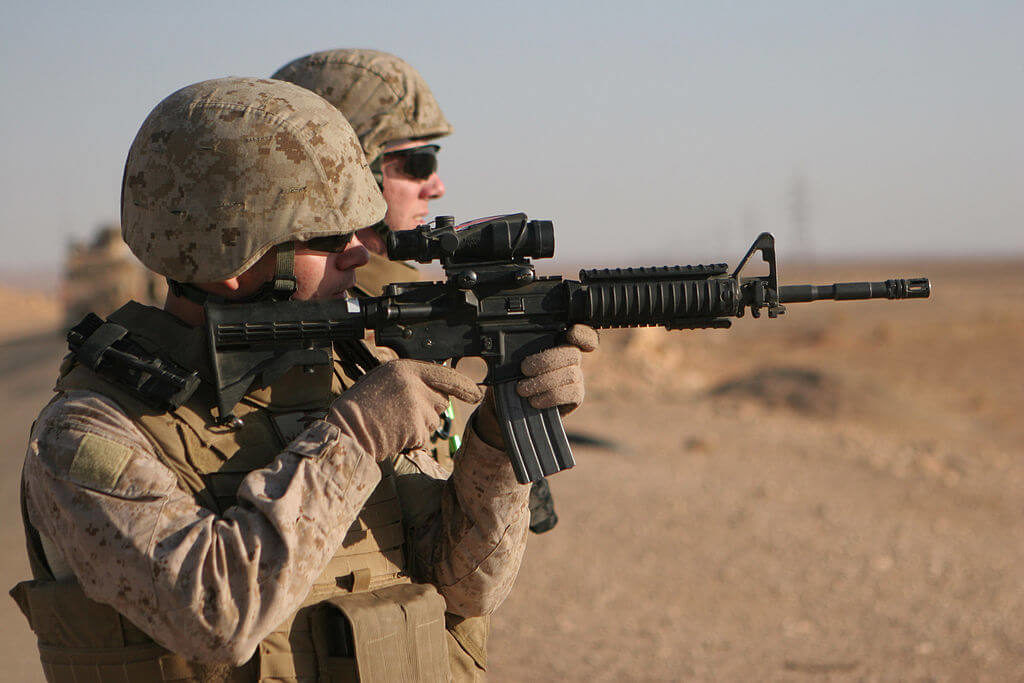VA Benefits for Combat Veterans

CCK Law: Our Vital Role in Veterans Law
Generally, combat veterans are those that served in a combat zone during their military service. This can include service in Vietnam, the Persian Gulf, and certain areas of Iraq and Afghanistan, among other locations. Combat veterans are eligible for a number of VA benefits and VA applies a unique standard for combat veterans when applying for disability compensation.
Healthcare Eligibility and Services
Veterans who served after November 11, 1998 and were discharged on or after January 28, 2003, and served in a theater of combat operation, have enhanced eligibility for VA healthcare. Veterans who are eligible will have the enhanced eligibility for up to 5 years from the date of their discharge or release from service.
Readjustment Counseling
Combat veterans can receive readjustment counseling at VA Vet Centers across the country. Vet Centers are free and offer counseling to combat veterans and their families after their discharge from service. Counseling options range from individual counseling, to group and family sessions that are all aimed at assisting combat veterans with the process of readjusting to civilian life. Any veteran who served in a combat theater is eligible for these services at a Vet Center.
Vet Center Combat Call Center is a 24/7 confidential call center that combat veterans and their families can use to discuss issues they are facing when it comes to readjustment. The staff at the Combat Call Center is made up of fellow combat veterans. To speak with someone at the Vet Center Combat Call Center, call 877-WAR-VETS (877-927-8387).
Service Connection for Combat Veterans
Post-Traumatic Stress Disorder (PTSD) Stressors
When a veteran files for service connection for post-traumatic stress disorder (PTSD), VA asks that they show three things:
- A current diagnosis of PTSD
- A verified in-service stressor (an event in service that caused their PTSD)
- A medical nexus linking the veteran’s PTSD to their claimed stressor
For combat veterans, the requirements are a little different. If a veteran served in a combat zone, VA will presume that they were exposed to incidents or events that would cause their PTSD. In this case, veterans do not have to point to a specific event in service and prove that the event happened. Instead, they can say that their service in combat caused their PTSD and submit service records that show they were stationed in a combat zone. VA must (generally) accept that a combat veteran’s statements are true when it comes to showing that they were injured or experienced a traumatic event in combat as long as the incident was “consistent with the circumstances, conditions, or hardships of such service,” according to 38 U.S.C. 1154(b).
Service Connection for Other Conditions
The idea explained above applies to conditions other than PTSD as well, as long as those conditions did occur in combat. If a veteran broke his or her leg during a combat mission, the standard would apply. However, if a combat veteran broke his or her leg from slipping in the shower on base, the standard for combat veterans above would not apply.
VA has this rule because they recognize that records are not always kept, or kept well, in combat zones due to the nature of the situations that arise. Recordkeeping may not be sufficient, or records may have been destroyed, so VA acknowledges that the burden of proof may be higher for combat veterans.
How Do I Prove I Was in Combat?
There are several ways you can prove you were in combat. The first can be through lay statements. In the VA system, veterans are presumed to be competent to speak to their in-service experiences. Veterans should also submit additional evidence to support their statement. Additional evidence can be your DD-214, the discharge document that service members receive at their separation from service. A DD-214 will not outright say “combat veteran” on it, but certain awards or medals listed on the document can show that you engaged in combat. Some of these include a Combat Action Badge, Combat Medical Badge, Combat Infantry Badge, Medal of Honor, Purple Heart, among many others. Additionally, submitting evidence that you received hazardous duty pay can be used to show you were in combat.
Combat-Related Special Compensation (CRSC)
Combat-Related Special Compensation (CRSC) is a special type of VA compensation provided to military retirees whose retired pay has been reduced because they receive VA disability compensation. Basically, military retirees (those with 20 or more years of military service) who have a combat-related VA disability will not have their retirement pay reduced due to receiving disability compensation. Instead, eligible veterans will receive their retirement pay plus an additional amount that is based on their VA disability rating for their combat-related condition.
About the Author
Share this Post
